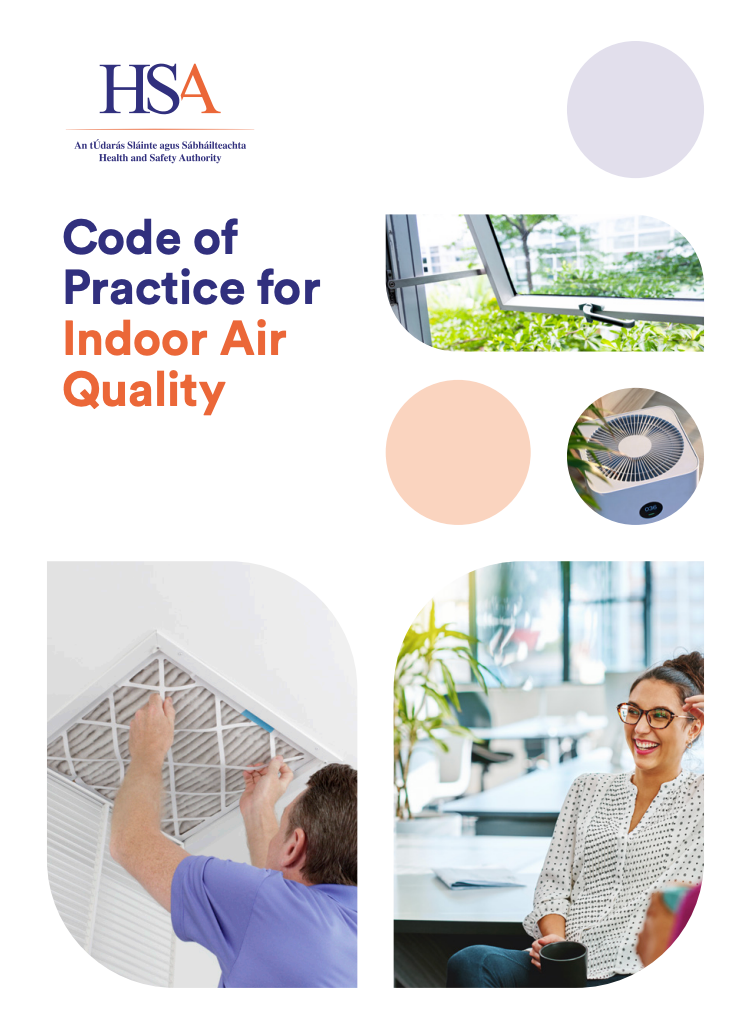As a business owner or manager, it’s your responsibility to ensure that your working environment is safe to work in and meets the standards outlined in the necessary pieces of legislation. One aspect that this includes that is often overlooked is air quality.
Just because we can’t see the air we breathe doesn’t mean it can’t damage our health. An air quality assessment allows you to see quantifiable data regarding the quality of the air at your commercial premises, so you can rest assured that it’s safe to breathe, or implement the necessary solutions if it’s not.
In this guide, we’ll explore all you need to know regarding the different types of air quality risk assessments available and how your business could benefit from these and the solutions they suggest. Read on below as we delve right in.
What are the Different Kinds of Air Quality Assessments?
Dust Management Assessment
Evidence shows that prolonged and consistent exposure to dust is correlated with negative health impacts. As a result of this, areas where high levels of dust are likely must be controlled in the workplace. This mainly concerns workplaces such as construction sites, large bakeries, joineries and woodshops.
A dust management assessment will identify the dust levels in various areas throughout their worksite as well as the type of dust as part of this comprehensive risk assessment, which will then determine the dust management plan that will need to be implemented alongside any product recommendations for continued dust monitoring and dust management.
Internal Air Quality Assessment
The term ‘air quality’ is used to describe how polluted the air we breathe is, for example from the presence of different gases or particulate matter, the level of which can have an adverse effect on people’s health.
An internal air quality assessment, then, must be carried out to determine the air quality within your business premises and whether there are any (and if so, how many) pollutants are inside that your employees and any visitors are being exposed to. These are particularly useful to premises such as offices or shops.
This includes a full survey of your premises, which will identify the layout, causes and solutions (including both short and long-term measures) of air pollution within your commercial property.
Mould Assessment
Just as mould affects domestic properties, it can affect commercial properties, too. It is a common issue that is not only a major cause for concern when it comes to the health and wellbeing of your staff and visitors, but can also cause structural damage to your building.
Being especially prevalent at this time of year, it’s essential to take the necessary actions surrounding mould management.
If you notice mould at your premises, then a mould assessment will be indispensable when tackling it. This will not only identify the type of mould that you’re experiencing, but will survey the cause of this mould alongside the solution to overcoming it.
It’s recommended that you opt for a full sampling report to be carried out alongside this. During this, both air and surface samples will be collected, which will then be sent for analysis to identify the mould type and toxicity, the infestation levels and the exposure level - all of which will be detailed in a full report.
Odour Assessment
If there is a distinct odour penetrating your workplace that is considered unpleasant, this can negatively impact the efficiency of your business’s performance. Not only may your staff work less efficiently, but you may leave a negative impression on any visitors or customers.
Even if distinct odours aren’t necessarily reflective of a poor air quality in your establishment (although they still can be), managing them is still important as part of your responsibility to provide a clean, healthy and productive working environment.
A full site odour assessment can help you to both manage and mitigate the impact of odours escaping or permeating your commercial premises.
The Overall Benefits of Air Quality Solutions and Assessments
Improved Health
From dust to air pollution to mould, poor air quality can severely impact people’s physical health in a number of ways. For example, according to the Health and Safety Authority (HSE), over 39,000 people have respiratory or lung problems due to dust inhalation associated with their workplace.
As for air pollution, breathing in air of a sufficiently poor quality can contribute to several illnesses from those with mild symptoms, such as headaches and sore throats, to those with links to more devastating issues, including lung disease, cancer, blood disease and more.
Similarly, mould is responsible for numerous health issues, being especially detrimental to people who suffer from existing chronic lung illnesses.
By carrying out the necessary air quality assessment to tackle all these issues, you will be providing a safe and healthy working environment for your employees - as is part of both your moral and professional responsibilities as an employer.
Improved Productivity
Because of the improved health of your workers as a result of effective air quality management, you will also notice a spike in productivity in the workplace. Your employees are likely to work much more productively when they are feeling healthier. This also means that they won’t require as many sick days, which ultimately impact business productivity.
Furthermore, as well as an improvement in physical health, there have also been positively correlating links between mental wellbeing and good air quality. As such, your employees will be more likely to attend work with a positive, can-do attitude that will be reflected in their performance.
Compliance with Health & Safety Regulations
As an employer, you are required by law to ensure safe and healthy working conditions. Within the legislation, there is specific guidance and rules regarding your responsibilities in relation to air quality.
HSE regulates dust management and air quality management in the workplace separately. For dust management, you should refer to their general principles of protection for dust in the workplace. As for air quality, you must adhere to the Code of Practice for Indoor Air Quality.
Having a relevant air quality assessment carried out at your commercial premises ensures that you are complying with the latest legislations and guidance listed in these relevant publications. Failure to do so could otherwise see you facing certain penalties that could severely impact both your business and your professional position.
All of the assessments we’ve discussed in this guide will provide you with a professional and detailed assessment of the air quality at your workplace and the recommended solutions for you to implement, which can be used as evidence to show your compliance with the relevant regulations and guidelines.
Enhanced Management
Whether or not you have existing measures in place to manage your air quality, air quality assessments and their recommended solutions will enhance these measures significantly, allowing you to mitigate the risks of poor quality air and promote high quality air at your workplace that can be monitored both easily and ongoingly.
An example of a solution that allows you to do as such is the inBiot MICA device, an intelligent indoor air quality management system that allows you to view your air quality conditions and ventilation needs in real time.
Enhanced management is especially useful for construction sites and other environments where there are high levels of dust in the air, especially considering that more than 3,500 construction workers die each year from work-related cancers - making effective dust management imperative.
Indoor Air Quality Assessments and More by Ultra Protect
Here at Ultra Protect, we understand the great importance of air quality, which is why we strive to provide high quality products and services that we believe will make a real difference in the fight for a healthy environment.
We provide a range of comprehensive air quality assessments depending on your business’s specific requirements, alongside numerous air and dust management solutions and products to help you achieve a healthy working environment where the air is safe to breathe.
For more information regarding our products or services, then please don’t hesitate to get in touch with us today and we’ll be happy to offer our support.







